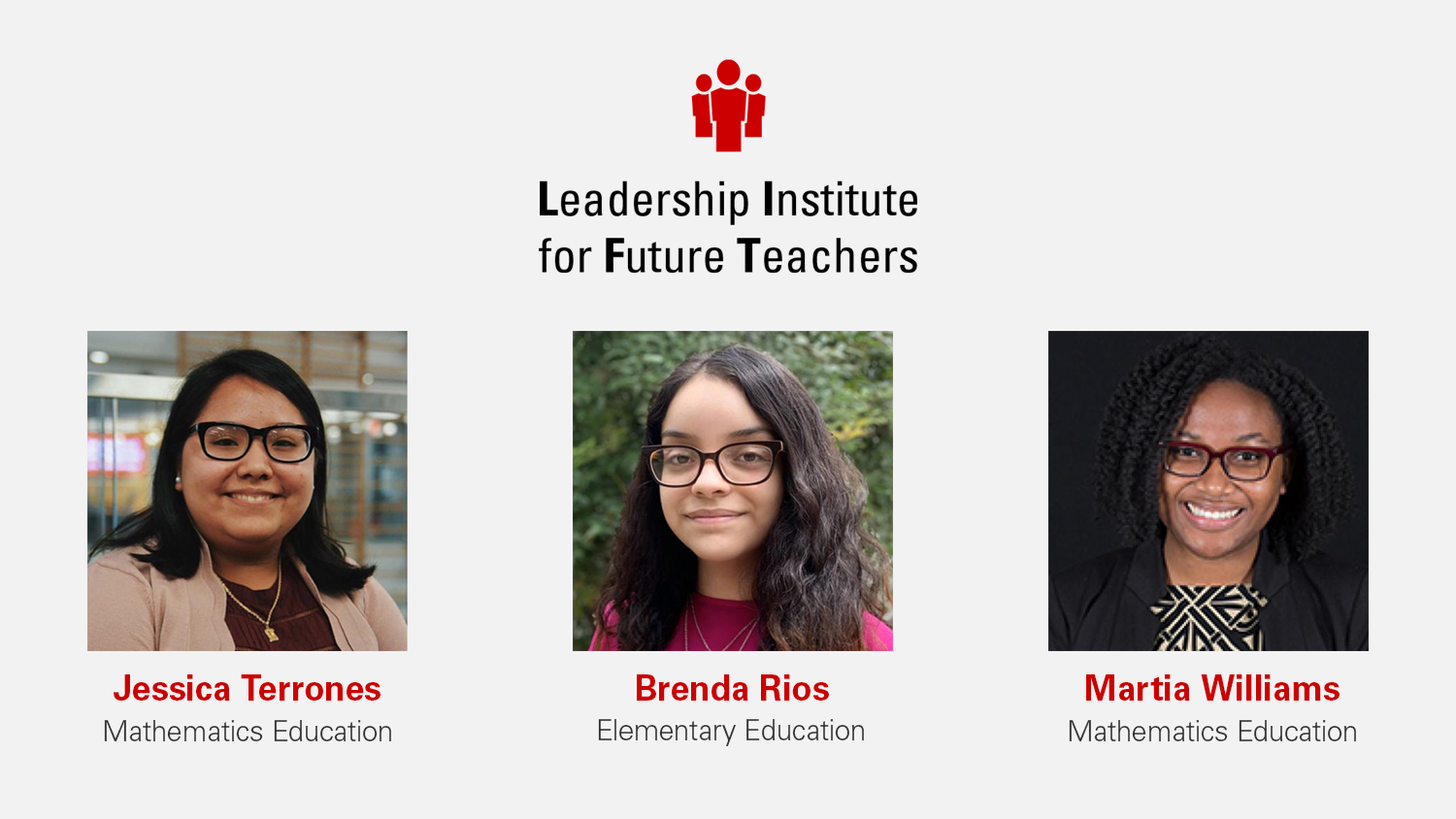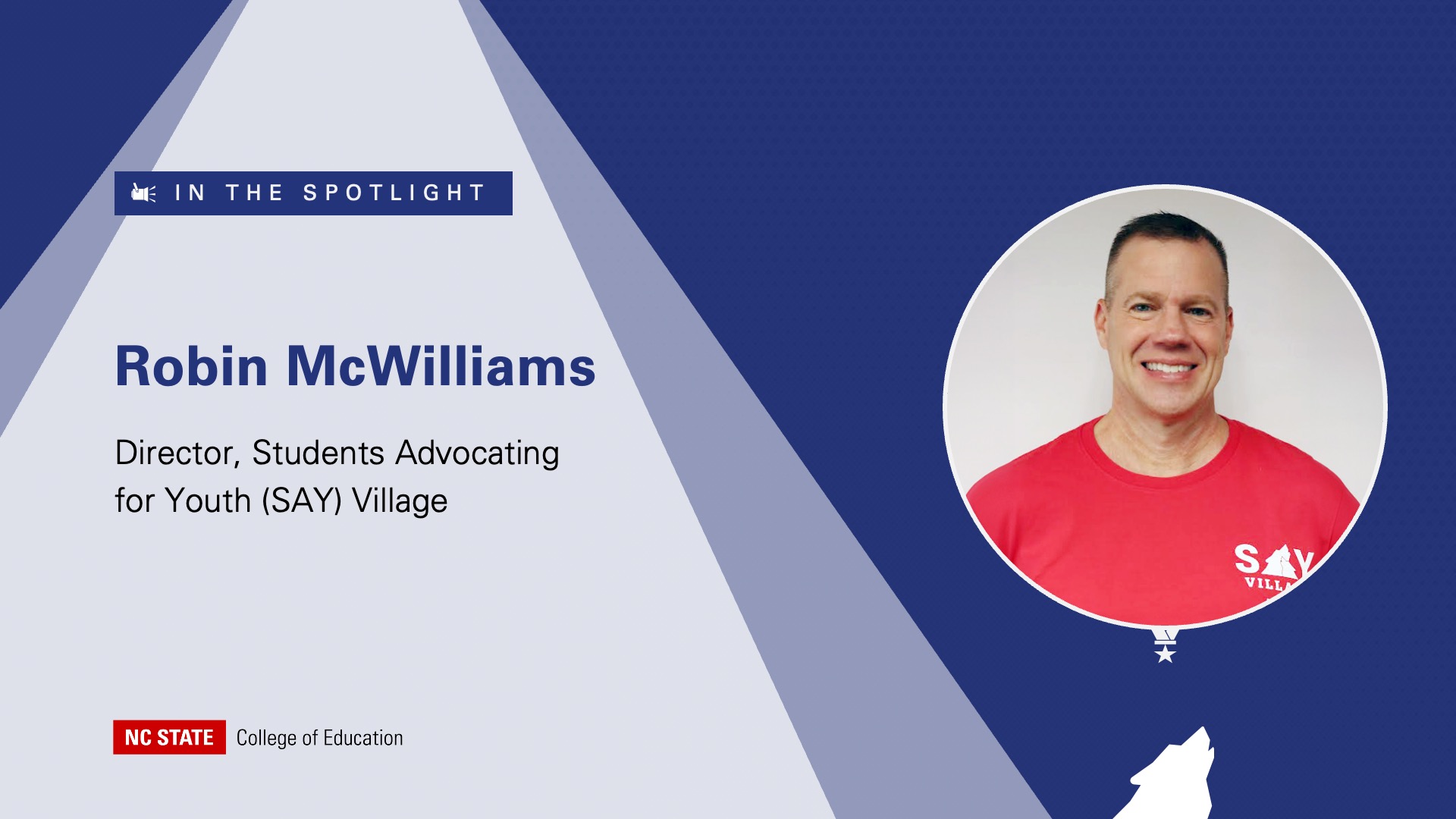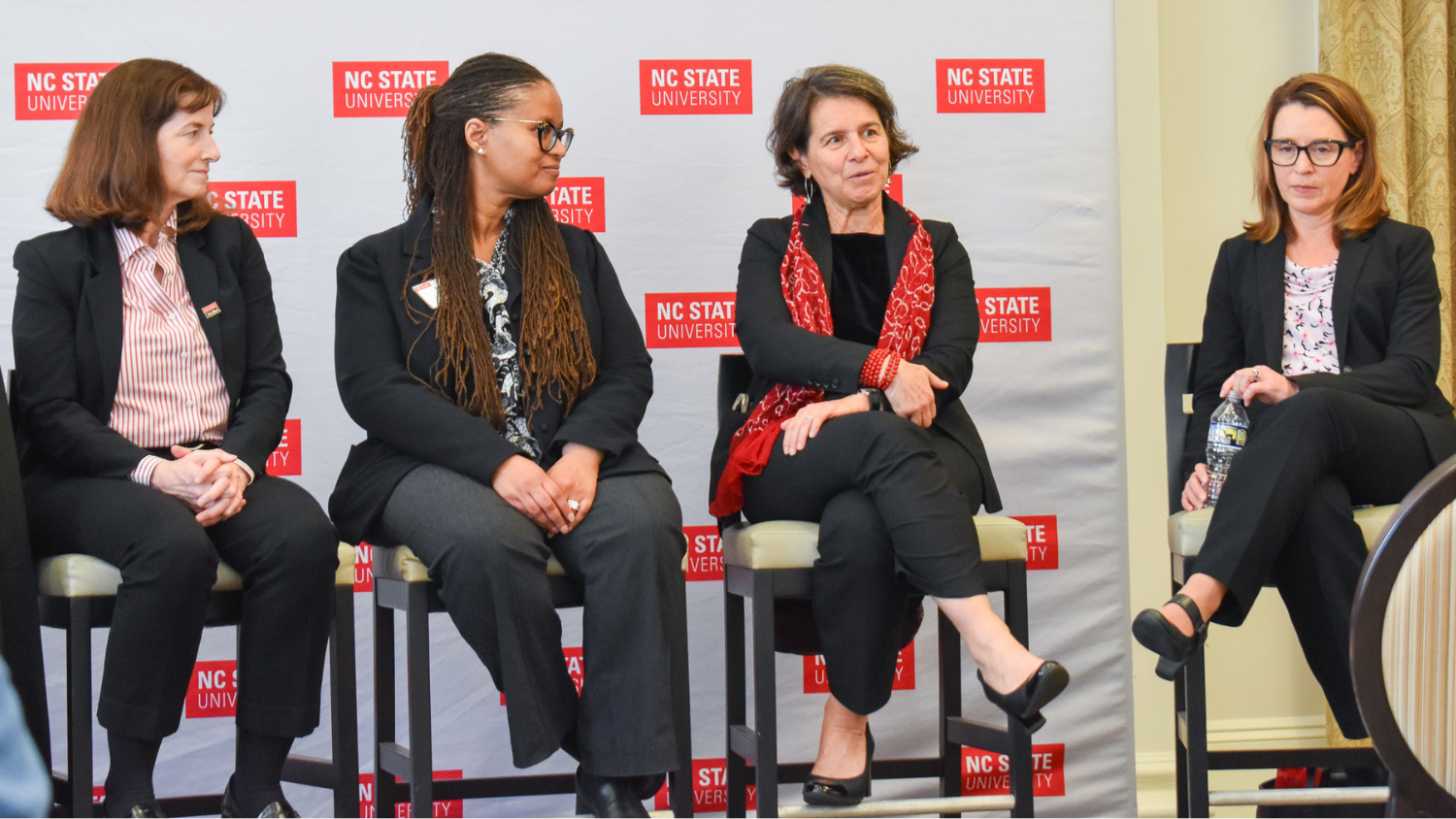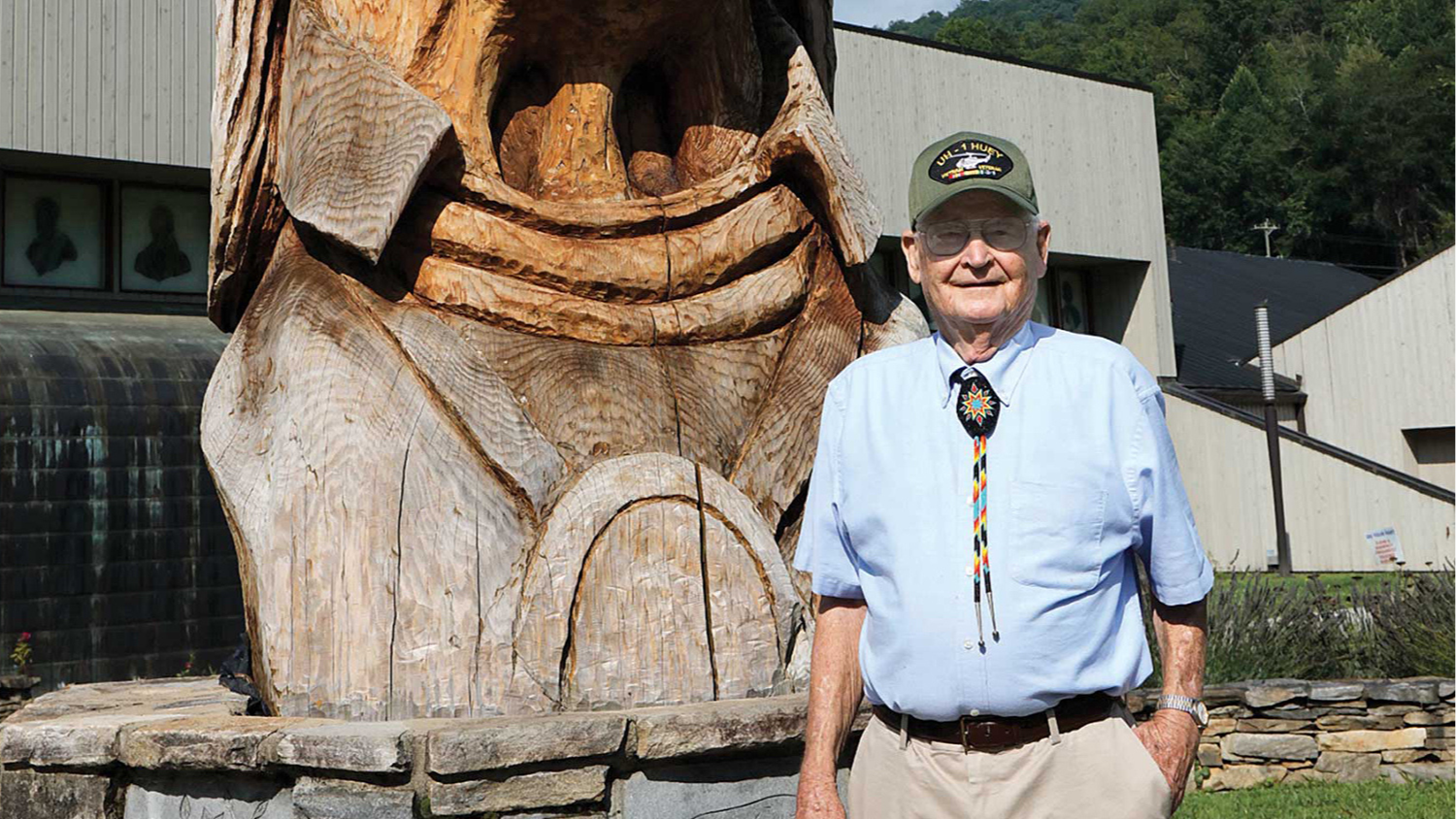My Student Experience: College of Education Students Share What They Learned as Counselors of the Leadership Institute for Future Teachers (LIFT) for High School Students

This is part of a monthly “My Student Experience” series in which the NC State College of Education highlights the student experience through profiles, stories and videos.
When Jessica Terrones ‘22 was in high school, she didn’t have access to programs that were tailored toward students of color and bilingual students, much less a program for students interested in leadership and education, because they weren’t available.
She often felt like an outsider for being a bilingual student of color who wanted to become a teacher, she says. That feeling is why she chose to serve as a counselor for the NC State College Education’s Leadership Institute for Future Teachers (LIFT).
[spotlight-box label=”” heading=”Short-term goals of LIFT:” align=’right’ cta=”” url=””]
- Elevate participants’ awareness to identify educational inequities, social injustices and racially biased policies that disproportionately impact the success of students of color.
- Promote culturally relevant leadership development skills through reflective dialogue.
- Increase interest in and support of students of color and bilingual high school seniors to matriculate into educator preparation programs (EPPs).
- Create and support a statewide network of peers to support each other’s goals in becoming teachers.
[/spotlight-box]
LIFT, which was held virtually July 26-31, is a five-day, invitational program for students of color and bilingual students who are rising high school seniors in North Carolina and who are interested in enhancing their leadership skills and exploring a potential career in education.
“It was vital for me to serve in that capacity because of representation. I never thought that I could have become a teacher because I rarely ever saw someone in my K-12 experience who looked like me,” said Terrones, a mathematics education major. “For me to serve as a counselor shows the students that there are individuals who look like them with similar aspirations. They are not alone on this journey.”
Thirty-four rising high school seniors from across North Carolina participated in the first cohort of LIFT — 47% were bilingual. The students — all Black, Brown or bilingual — engaged in leadership development activities, brainstormed strategies to implement equity practices in their schools and built connections with other students and educators.
Participants were divided into groups led by current College of Education students who served as counselors and mentors, giving them an opportunity to connect with current students.
For Martia Williams ‘22, a mathematics education major, LIFT was an opportunity for her to gain experience working with high school students as she plans to be a high school math teacher. But the experience also allowed her to dive into her passion of working with underrepresented students and serving as an advocate.
“My passion for students of color is why it was important for me to serve as a LIFT counselor. Not all students of color have the opportunity to have minority mentors and I wanted the opportunity to mentor prospective teachers of color,” Williams said. “I have always had a passion for underrepresented students in education and plan to spend my career advocating for these students, and I thought that it would be great to get this experience early on in my career.”
Throughout the week, participants heard from educational leaders such as Latanya Pattillo, teacher advisor to the governor; MariaRosa Rangel, director of Family and Community Engagement for the Wake County Public School System; and Rodney Robinson, the 2019 National Teacher of the Year. Participants also had the opportunity to hear from school administrators and educators from around North Carolina.
As a high school senior, elementary education major Brenda Rios ‘23 was unsure if education was the right career path for her, which is why she chose to serve as a counselor to help assist and meet seniors who are in the same position she was in not too long ago. And she says she learned so much from the experience as a counselor and mentor.
“Even though the guest speakers were ultimately meant for the high school leaders, I, too, learned valuable information I would not have learned in a classroom setting. I also learned the needs and motivations of students who are unsure whether they belong in the education field,” Rios said. “Students left highly motivated and happy, which was great growth in a week.”
Participants were also able to learn about various nonprofit organizations that are working in the community to diversify the educational workforce and increase educational access for all students. Those organizations were Profound Gentlemen, we are and LatinxEd.
[giving-form heading=’Support Our Students’ align=’left’ submit_to=’https://give.ncsu.edu/education’ cta=’Make a Gift’] Help us provide life-shaping experiences for our students so they can go on to become extraordinary educators. Support our College of Education Excellence Fund. [/giving-form]
As future educators, the College of Education students were able to gain insight and learn from not only the speakers, but the high school participants. Williams learned ways she can be a better teacher and connect with her future students, and left LIFT feeling encouraged, motivated and reminded of her passion for education.
“I learned the importance of making connections with your students and connecting what they are passionate about to my classroom teaching. Sometimes, as educators, it can be easy to get caught up in standards and material but the real focus should be the students and connecting their passion to the classroom,” said Williams.
The NC State College of Education partnered with the North Carolina Central University School of Education, Best NC, Public School Forum and the North Carolina Teaching Fellows Program to bring this opportunity to the high school students. Financial sponsors were the NC State University Foundation, Belk Foundation and the Burroughs Wellcome Fund.
- Categories:


